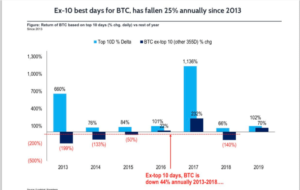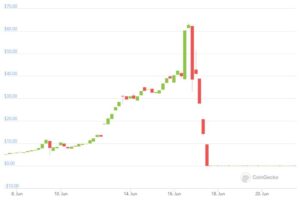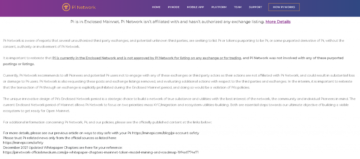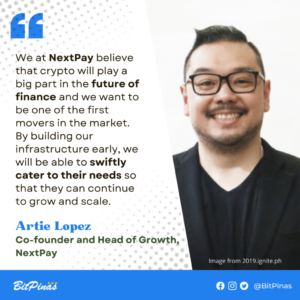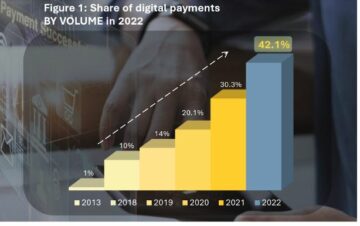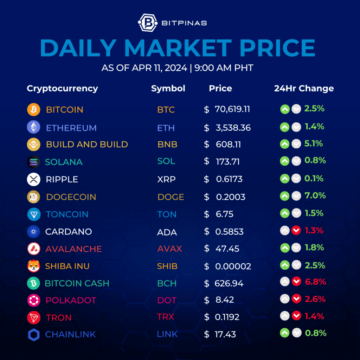
Subscribe to our newsletter!
- Non-fungible token (NFT) sales surged to $2.04 billion in February, up almost 120% from January, largely driven by activity on the controversial trading platform, Blur.
- Blur has become the largest NFT marketplace and aggregator in the industry, surpassing OpenSea, with 400,000 active users and $1.4 billion in traded volume.
- However, there have been concerns over the credibility of the platform, as on-chain data suggests that its rise in NFT trading volume has been fueled by whales buying and selling NFTs in bid pools to “farm” token rewards for the next airdrop.
As total sales of non-fungible tokens (NFTs) in February skyrocketed to $2.04 billion, up by almost 120% from January’s $941 million, online publication Decypt stressed that the surge was due to the “controversial trading activities” in the NFT marketplace Blur.
According to data from DappRadar, the February 2023 surge had not been experienced by the industry since May 2022, when the collapse of Terra Labs, the firm behind Terra USD and LUNA tokens, happened.
Read our latest story about Do Kwon and the Terra-Luna tragedy here.
“The emergent NFT marketplace, which just this month surpassed OpenSea in trading volume, has fueled its rapid rise to dominance with incentives that financially reward loyal users for refraining from trading on any other platform and—crucially—for trading as many high-value NFTs as possible,” Decrypto said in its article.
Launched on October 19, 2022, Blur is an NFT marketplace and aggregator on the Ethereum mainnet where users can compare NFTs across marketplaces, manage portfolios with advanced analytics, and buy NFTs.
The platform claims to offer traders the ability to make batch operations through batch shelf and floor-sweeping transactions in addition to order book NFT transactions. Buyers can also use the platform to buy NFTs minted on other NFT marketplaces with a “trader-friendly” fee structure that does not charge any transaction fees for users on the platform.
Blur’s native token, $BLUR, has a total supply of three billion, which is expected to be fully released by at least 2026. The token allocation is divided into:
- 51% for the community
- 29% for the past and future core contributors
- 19% for investors
- 1% for advisors
According to the platform’s community treasury, its goal is to distribute 39% of the $BLUR supply through contributor grants, community initiatives, and incentive programs. While the 10% is allocated to the next incentive release. The vesting of $BLUR will occur continuously according to a set schedule for each group of token recipients.
With the above-mentioned services, Blur has become the largest NFT marketplace and aggregator in the industry in terms of volume, surpassing marketplace giant OpenSea, for just half a year. According to Dune Analytics, Blur currently has 400,000 active users and $1.4 billion in traded volume.
However, there were speculations about the credibility of the platform as on-chain data shows that Blur’s sudden rise in NFT trading volume is primarily fueled by whales who are constantly buying and selling NFTs on the marketplace’s bid pools in an effort to “farm” token rewards for its next airdrop.
One of the firms that shared their disappointment over the matter is CryptoSlam, a platform for tracking NFT sales, which announced that it will remove $577 million worth of Blur trades from its data due to “market manipulation.” CryptoSlam even emphasized that it will filter Blur trades on its platform through an updated algorithm that excludes suspicious sales.
“Blur’s trading volume jumped over $1.13 billion in February from the month prior, a stunning statistic that accounts for almost all of the entire NFT market’s month-over-month gains. But the majority of that volume was generated by a small number of whales flipping NFTs back and forth and back again to accumulate BLUR tokens through the company’s incentive scheme,” Decrypt explained.
This article is published on BitPinas: Controversial NFT Trading Platform Blur Drives Sales Surge in February
Disclaimer: BitPinas articles and its external content are not financial advice. The team serves to deliver independent, unbiased news to provide information for Philippine-crypto and beyond.
- SEO Powered Content & PR Distribution. Get Amplified Today.
- Platoblockchain. Web3 Metaverse Intelligence. Knowledge Amplified. Access Here.
- Source: https://bitpinas.com/nft/nft-sales-surge-february-2023/
- :is
- $UP
- 000
- 2022
- 2023
- a
- ability
- About
- According
- Accounts
- Accumulate
- across
- active
- activity
- addition
- advanced
- advice
- Aggregator
- airdrop
- algorithm
- All
- allocated
- allocation
- analytics
- and
- announced
- ARE
- article
- articles
- AS
- At
- back
- BE
- become
- behind
- Beyond
- bid
- Billion
- BitPinas
- blur
- book
- buy
- buyers
- Buying
- by
- CAN
- charge
- claims
- Collapse
- community
- Company’s
- compare
- Concerns
- constantly
- content
- continuously
- contributor
- controversial
- Core
- Credibility
- CryptoSlam
- Currently
- DappRadar
- data
- Decrypt
- deliver
- disappointment
- distribute
- divided
- Do Kwon
- Dominance
- driven
- Dune
- Dune Analytics
- each
- effort
- emphasized
- Entire
- ethereum
- ETHEREUM MAINNET
- Even
- expected
- experienced
- explained
- external
- February
- fee
- Fees
- filter
- financial
- financially
- Firm
- firms
- For
- from
- fully
- future
- Gains
- generated
- giant
- goal
- grants
- Group
- Half
- happened
- Have
- here
- HTTPS
- in
- Incentive
- Incentives
- independent
- industry
- information
- initiatives
- IT
- ITS
- January
- Kwon
- Labs
- largely
- largest
- latest
- love
- loyal
- Luna
- mainnet
- Majority
- make
- manage
- Manipulation
- many
- marketplace
- marketplaces
- Matter
- million
- minted
- Month
- native
- news
- next
- NFT
- nft marketplace
- NFT Marketplaces
- nft sales
- NFT trading
- NFTs
- non-fungible
- non-fungible tokens
- NON-FUNGIBLE TOKENS (NFTS)
- number
- october
- of
- offer
- on
- On-Chain
- on-chain data
- online
- OpenSea
- Operations
- order
- Other
- past
- platform
- Platforms
- plato
- Plato Data Intelligence
- PlatoData
- Pools
- portfolios
- possible
- primarily
- Prior
- Programs
- provide
- Publication
- published
- rapid
- recipients
- release
- released
- remove
- Reward
- Rewards
- Rise
- sales
- schedule
- scheme
- Selling
- serves
- Services
- set
- shared
- Shelf
- Shows
- since
- small
- some
- Story
- structure
- Stunning
- sudden
- Suggests
- supply
- surge
- Surged
- surpassed
- suspicious
- team
- terms
- Terra
- Terra USD
- that
- The
- their
- three
- Through
- to
- token
- Tokens
- Total
- Tracking
- traded
- Traders
- trades
- Trading
- Trading Platform
- trading volume
- transaction
- Transaction Fees
- Transactions
- treasury
- updated
- USD
- use
- users
- Vesting
- volume
- whales
- which
- while
- WHO
- will
- with
- worth
- year
- zephyrnet

